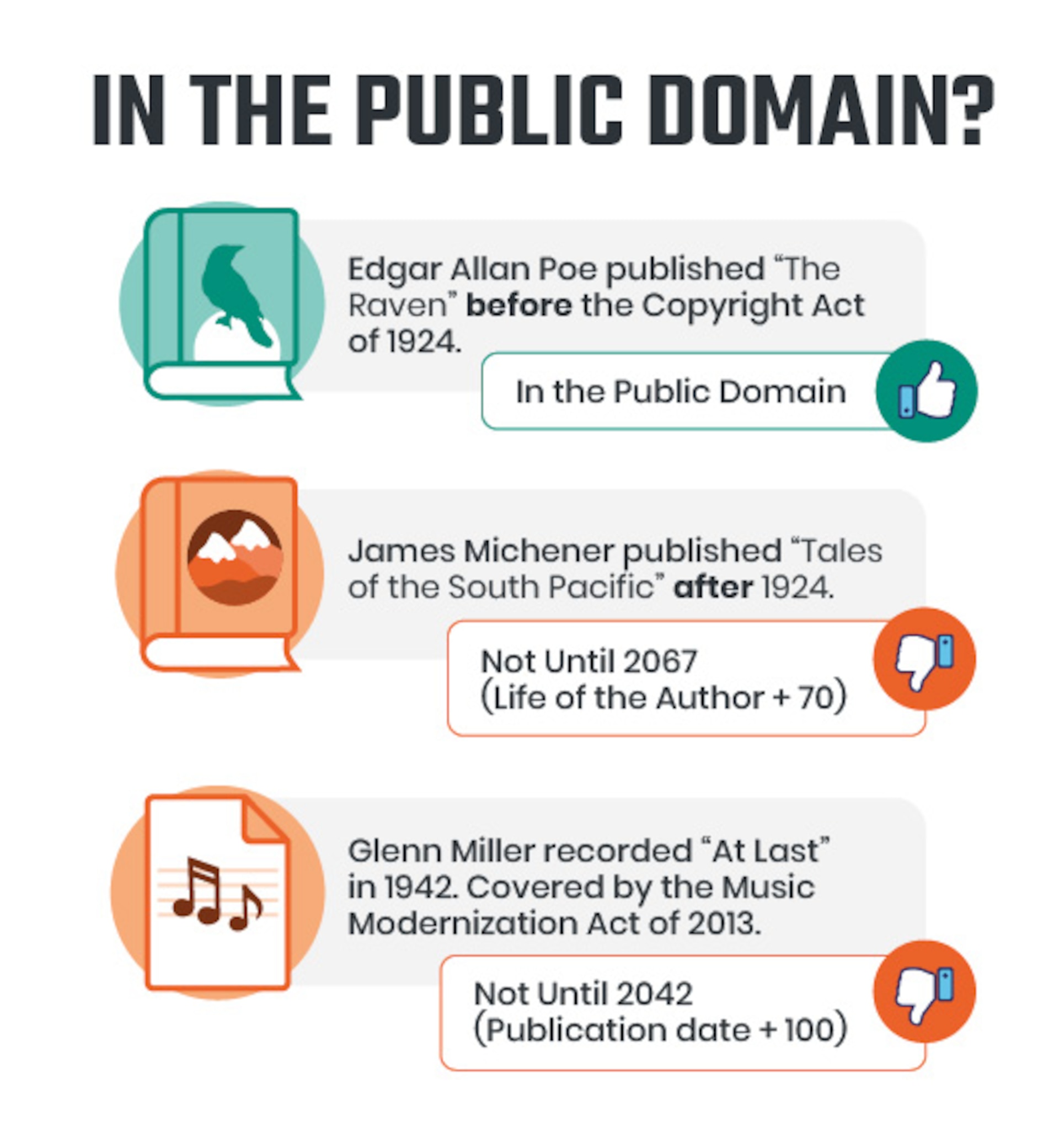The public domain refers to a space where intellectual property rights, such as copyright, patent, and trademark rights, have expired, been forfeited, or are not applicable. In the public domain, these works are considered to be freely available for use by the public without the need for permission or payment. Once a work enters the public domain, anyone can use, modify, reproduce, and distribute it without encountering legal restrictions.
There are several ways in which a work may enter the public domain:
Expiration of Copyright: Copyright protection is not indefinite. Once the copyright term expires, the work enters the public domain. The specific duration of copyright varies by jurisdiction and the type of work but typically lasts for a certain number of years after the death of the creator.
Failure to Renew Copyright: In some cases, copyright holders may need to renew their copyright after a certain period. If this renewal is not pursued, the work may enter the public domain.
Intentional Dedication: A copyright holder may choose to explicitly dedicate their work to the public domain, waiving their rights and allowing anyone to use the work without restrictions.
Lack of Eligibility for Protection: Some works may not meet the criteria for copyright protection, such as works that do not possess the requisite level of creativity or are considered to be in the public domain from the outset.
Expiration of Patent and Trademark Rights: Similar to copyright, patent and trademark rights have limited durations. Once these rights expire, the inventions or symbols they protected enter the public domain.


Note: It's important to note that the public domain status of a work can vary by jurisdiction and that copyright laws can be complex. Additionally, while the term "public domain" generally refers to the absence of intellectual property rights, it's crucial to understand the specific legal status of a work in a particular context and jurisdiction before assuming that it is in the public domain.